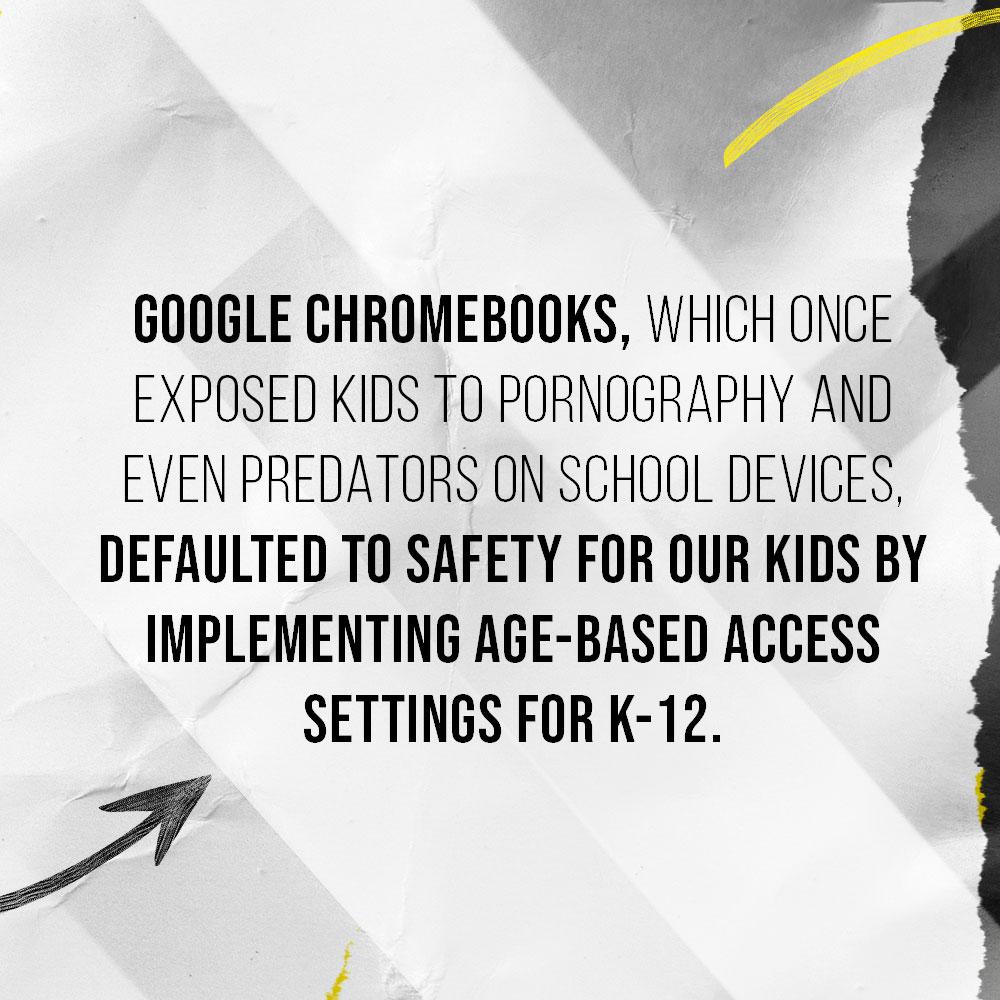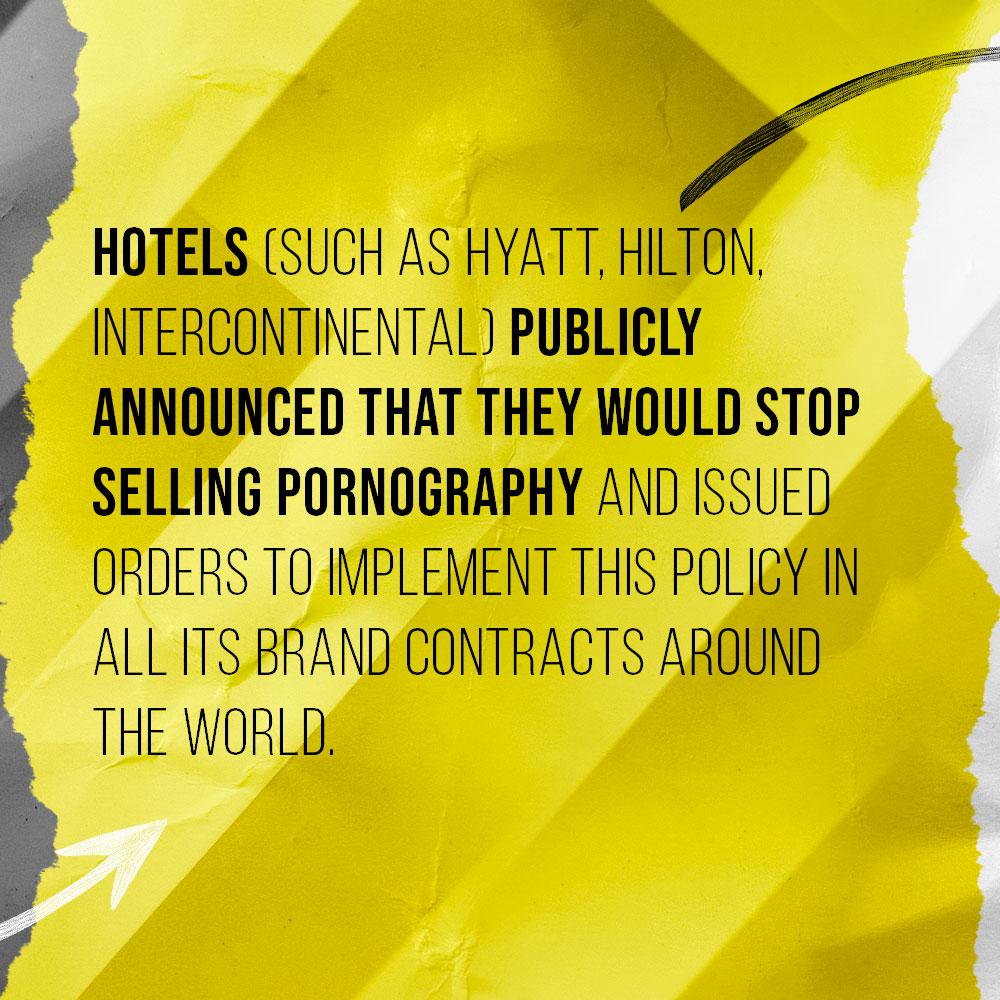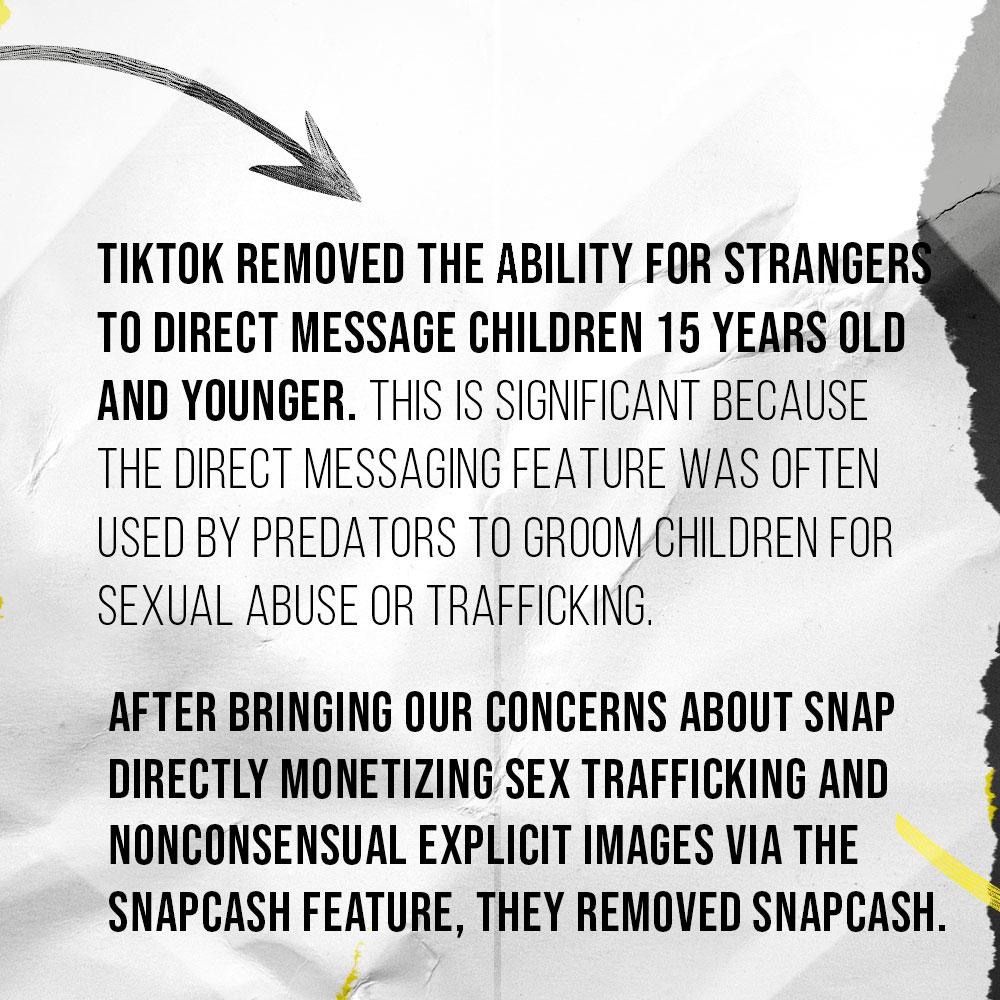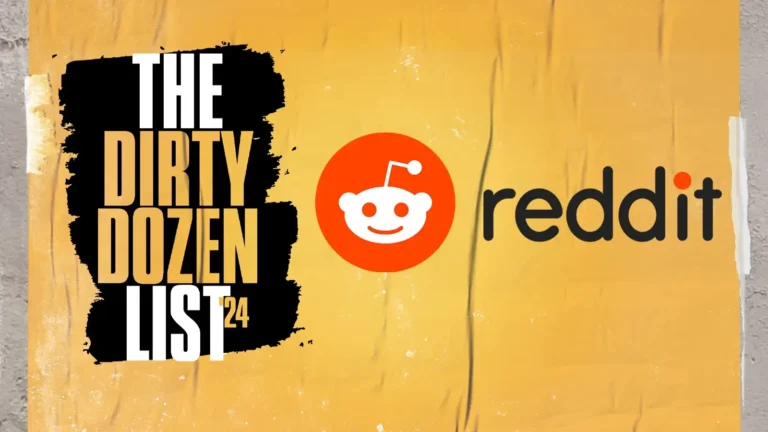“I’m just one person, how can I have any impact?”
I had just finished speaking at a college about the harms of sex trafficking, sexual violence, and pornography. Under the bright auditorium lights, it was time for the audience Q&A and several hands were raised. At first, the mood in the room was heavy. Hearing about abuses and trauma—and how mainstream institutions often turn a blind eye—was overwhelming.
What hope is there when social media companies facilitate sex trafficking?
What hope is there when mainstream companies profit from, or promote, pornography?
What hope is there when large scale institutions cover up child sexual abuse?
The answer is what I told this college student:
“There is hope in the fight against sexual exploitation because when individuals like you take action, it makes a difference!”
This reality is on full display when we look back at the last decade of the Dirty Dozen List—an annual campaign calling out twelve mainstream entities for facilitating, enabling, and even profiting from sexual abuse and exploitation.
Since its inception in 2013, the Dirty Dozen List has galvanized thousands of individuals like YOU to call on corporations, government agencies, and organizations to change problematic policies and practices. It provides evidence of the harm that’s being done but it doesn’t stop there—the Dirty Dozen List EQUIPS concerned citizens with easy ways to send emails to executives, post on social media, sign petitions, contact their elected representatives, and more.
The incredible thing is that when we speak out against exploitation—change happens. For proof, let’s review just a few of the victories that have been won in the last decade of the Dirty Dozen List.
@endexploitation Take easy actions to hold companies accountable for facilitating exploitation! #DirtyDozenList #corporateresponsibility #abuseawareness ♬ UNDERWATER WONDERSCAPES (MASTER) – Frederic Bernard
American Apparel
American Apparel stopped using nudity and sexually explicit advertising for its clothing line and took extensive measures to remove these types of ads from its online and print catalogues. This prevents countless young teens from receiving sexually objectifying messages!
Carl’s Jr.
Carl’s Jr., one of four brands under CKE Restaurants including Hardee’s, has stopped producing hyper-sexualized, misogynistic ads for their fast food products. CKE Restaurants received substantial negative press for their demeaning ads after being placed on NCOSE’s 2015 Dirty Dozen List, and have finally stopped demeaning women in ads for their stores in 42 states and 38 foreign countries.
Comcast
Comcast significantly improved usability and parental control settings for their 20+ million cable and Internet users. Comcast executives told NCOSE, “We heard your feedback and made improvements.” While NCOSE is still petitioning Comcast to stop selling pornography, these important innovations make Comcast a leader on family safety within the telecommunications industry!
CVS
CVS Pharmacy, out of concerns about female objectification, decided to remove the annual Sports Illustrated Swimsuit Issue from their checkout areas and promotional displays. Before this, CVS’s 4.5 million daily customers were unwillingly exposed to these degrading images, but now they can shop freely.
Department of Defense
After being placed on the Dirty Dozen List, the Army and Air Force exchanges finally stopped selling pornographic magazines. This was a significant victory considering climates of sexual harassment for female DOD employees, and also the links between inegalitarian attitudes, sexual violence, and pornography.
GROUPON
After NCOSE led a boycott with more than 20,000 participants, GROUPON promised to stop selling coupons for sexually exploitive events like tours of torture porn studios.
Google has begun blurring out sexually explicit images in search results! In addition to this, Google Chromebooks, which once exposed kids to pornography on school devices, defaulted to safety for our kids by implementing age-based access settings. Google also adopted a policy to prohibit pornographic ads and any ads that link to websites with sexually explicit content. Learn more about Google’s steps forward, as well as our continued activism for even more improvements.

Google Play
Google Play instituted policies that prohibit pornographic apps in their app store, after the first year on our Dirty Dozen List, though lax enforcement of this policy followed. After a second year on the list, Google Play removed all apps in violation. This protects 1 billion monthly active users.
Hilton Hotels Worldwide, Hyatt Hotels & Resorts, InterContinental Hotel Group
These hotels all committed to stop selling in-room pornography and issued orders to implement this policy in all of its brand contracts around the world.
Together with the other hotels NCOSE has influenced, this means there are now 2 million hotel rooms around the world that no longer profit from and promote pornography!

While Instagram still has more work to do, they met with NCOSE several times prior to 2021, in order to hear and address some of our concerns. This includes increasing some protections for children by improving systems to identify grooming behavior patterns, and no longer allowing adult strangers to send unsolicited direct messages for minors. Each policy improvement helps prevent abuse for its 1 billion monthly users.
Netflix
After thousands of emails were sent to Netflix by grassroots supporters through the Dirty Dozen List, Netflix took a step forward. Netflix’s parental controls have improved so that 4-digit pin codes used to block certain shows or ratings remain consistent across Profiles, thereby closing a loophole where children could accidentally access sexually graphic content. Further, there are now content warnings at the beginning of every show. These policies are impacting nearly 150 million subscribers!
Please consider a donation of $12, $120, or more to help keep this campaign going!
Snapchat
Snapchat—used by 74% of U.S. teens aged 15 to 17 years—is often used to share pornography or to advertise sex trafficked and prostituted victims because of the fact that photos will “disappear” after a few moments. We brought these concerns, and many more, to Snapchat headquarters in Washington D.C. Snapchat has since removed the Snapcash feature that once directly monetized sex trafficked and nonconsensual sexually explicit images and improved policies to decrease sexually graphic click-bait in the Discover section. They also have implemented a new Parent Center.
TikTok
Shortly after meeting with NCOSE, TikTok instituted several of our suggestions which included removing the automatic 30 day “reset” on safety features and initiating a pin-code protected “Family Pairing” mode so guardians could monitor and manage their children’s TikTok profile more closely. Later in 2020, TikTok also disabled Direct Messaging for users under 16 which was a feature used as a primary means for predators to engage with and groom children.

United Airlines
After hundreds of messages flooded United Airlines’ Customer Service line while the corporation was listed on the 2019 Dirty Dozen List, United stepped up to combat in-flight sexual harassment and pornography use with improved training for its flight attendants. The new training emphasizes United Airlines’ zero tolerance policy for hardcore pornography (and anything over an R-rating) on personal devices and helps flight crews with how to approach passengers who view such material in-flight.
Verizon
Verizon removed the child-themed and slavery-themed pornographic films they were offering through their FIOS TV. In 2016 Verizon also changed its policy for new FiOS IPTV customers so that they will automatically be offered pornography-free television packages unless customers specifically request to opt-in to such content. These are important steps forward, and we continue to advocate for a complete rejection of porn by Verizon.
Walmart
In 2018, after collaborative dialogue with NCOSE, Walmart committed to removing Cosmopolitan magazine from checkout lines at all of its stores across the country. Cosmopolitan, like Playboy, places women’s value primarily on their ability to sexually satisfy a man and therefore feeds a culture that premises male sexual entitlement. NCOSE is grateful for Walmart’s leadership to reduce the amount of unsolicited sexually objectifying material that bombards youth and adults alike.
There are so many more victories we cannot cover in one blog. But know that each of these victories came about because people like you lifted your voices—and these entities listened!
We know there is still so much more to do! So please visit DirtyDozenList.com to learn more and become part of the next victory.
And tune in on May 2nd to see the 2023 Dirty Dozen List reveal!
And if you are willing, please consider a donation of $12, $120, or more to help keep this campaign going!



